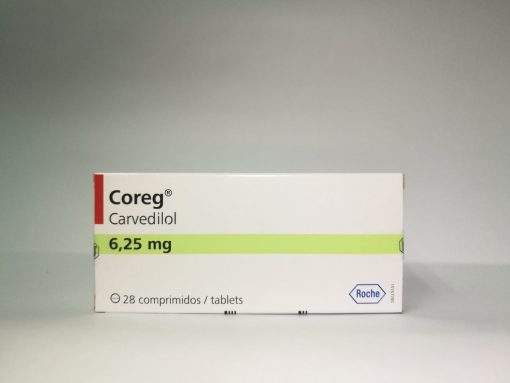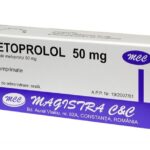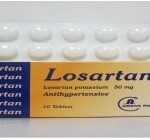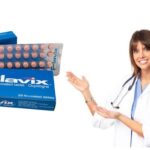What To Do If You Accidentally Took Double Dose Carvedilol

Carvedilol, sold under the brand name Coreg among others, is a medication used to treat high blood pressure, congestive heart failure, and left ventricular dysfunction in people who are otherwise stable. For high blood pressure, it is generally a second-line treatment. It is taken by mouth.
Carvedilol works on alpha and beta receptors present in blood vessels and muscles. Carvedilol has a ‘non-selective’ action – this means that it not only affects beta receptors in the heart, it also affects beta receptors in the lungs (this may cause breathing difficulties in people with preexisting lung disease). Carvedilol’s alpha-blocking activity means it helps to dilate (keep open) blood vessels around the heart. Carvedilol belongs to the class of medicines known as beta-blockers/alpha-1 blockers.
How should this medicine be used?
Carvedilol comes as a tablet and an extended-release (long-acting) capsule to take by mouth. The tablet is usually taken twice a day with food. The extended-release capsule is usually taken once a day in the morning with food. Try to take carvedilol at around the same time(s) every day. Follow the directions on your prescription label carefully, and ask your doctor or pharmacist to explain any part you do not understand. Take carvedilol exactly as directed. Do not take more or less of it or take it more often than prescribed by your doctor.
Swallow the extended-release capsules whole. Do not chew or crush the capsules, and do not divide the beads inside a capsule into more than one dose. If you are unable to swallow the capsules, you may carefully open a capsule and sprinkle all of the beads it contains over a spoonful of cool or room temperature applesauce. Swallow the entire mixture immediately without chewing.
Your doctor will probably start you on a low dose of carvedilol and gradually increase your dose to allow your body to adjust to the medication. Talk to your doctor about how you feel and about any symptoms you experience during this time.
Carvedilol may help to control your condition but will not cure it. Continue taking carvedilol even if you feel well. Do not stop taking carvedilol without talking to your doctor. If you suddenly stop taking carvedilol, you may experience serious heart problems such as severe chest pain, a heart attack, or an irregular heartbeat. Your doctor will probably want to decrease your dose gradually over 1 to 2 weeks. Your doctor will watch you carefully and will probably tell you to avoid physical activity during this time.
If you accidentally take double dose carvedilol, it can cause your heart to stop. Symptoms of overdose of carvedilol can include:
- low blood pressure
- low and heart rate
- vomiting
- shortness of breath
- bluish-colored fingernails
- dizziness
- weakness
- fainting and seizure (convulsions)
Avoid driving or hazardous activity until you know how this medicine will affect you. Your reactions could be impaired. In case of overdose, call the poison control helpline at 1-800-222-1222. Information is also available online at https://www.poisonhelp.org/help. If the victim has collapsed, had a seizure, has trouble breathing, or can’t be awakened, immediately call emergency services at 911.
Carvedilol Safety Information and Side Effects
If you are between the ages of 18 and 60, take no other medication or have no other medical conditions, side effects you are more likely to experience include:
- Treatment initiation may be associated with transient symptoms of dizziness and lightheadedness within the first hour after dosing, due to a lowering of blood pressure. Avoid driving or operating machinery during this time if affected.
- May cause fluid retention, which may be relieved by diuretics prescribed by a doctor.
- May aggravate peripheral circulatory disorders, cause several unwanted heart-related effects, and may affect breathing, so the response must be monitored.
- May cause tiredness, dizziness, diarrhea, nausea, weight gain, and laboratory abnormalities. If the heart rate drops below 55 beats per minute, the dosage of carvedilol should be reduced.
- Generally not recommended for people with asthma or other types of bronchospastic disease; deaths related to breathing difficulties have been reported following single doses of carvedilol tablets. Also not suitable for people with certain heart conditions, thyroid disease, or severe liver disease.
- Abrupt discontinuation may precipitate an exacerbation of angina or more severe heart conditions (eg, heart attack) in people with coronary artery disease. Discontinue only under a doctor’s advice over a minimum of one to two weeks.
- May also cause worsening of heart failure during up-titration or impair renal function in people with heart failure.
- Can mask symptoms of hypoglycemia in people with diabetes. Can also cause hyperglycemia in heart failure patients with diabetes. Blood glucose levels should be monitored when carvedilol is initiated, adjusted, or discontinued.
- May interact with some drugs including cyclosporine, digoxin, amiodarone, insulin, other drugs used for heart disease, and some anesthetics.
- Not approved for children under the age of 18.





